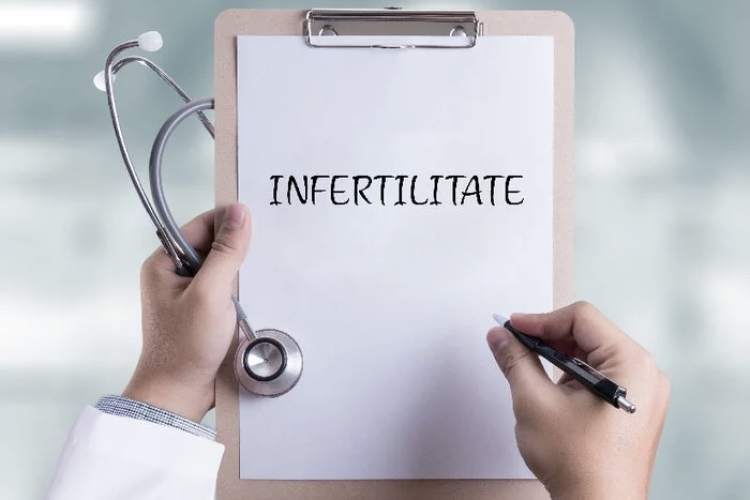
Infertility is a couple problem. Both men and women face conception problems. Nevertheless, the burden of infertility if often put on the women’s shoulders. Over 11% of the population aged between 15 and 49 experiences infertility problems, shows the “Generations and Gender” Survey that was conducted with support from the Government of the Republic of Moldova. The data of the study were discussed in a public debate entitled “Infertility in demographic and reproductive health context” that was staged by UNFPA, IPN reports.
Victoria Ciubotaru, obstetrician-gynecologist of the Chisinau Mother and Child Institute, said that many families, especially from rural areas, cannot cover the costs associated with in vitro fertilization even if the state pays about 40% of the cost of the first procedure. “According to our analysis, in vitro fertilization is accessible to couples from urban areas. The population from rural areas remains in the vulnerable group that includes persons close to the poverty line who cannot afford to travel from one city to another and especially to pay the difference of 60% of the cost of the procedure. When they hear these sums, they consider them enormous and leave disappointed and don’t know what to do. Next year, the municipality will pay 100% of the cost of in vitro fertilization for 100 socially deprived families and this is very good,” stated Victoria Ciubotaru.
According to the doctor, the couples that benefitted from in vitro fertilization the last few years were aged between 30 and 35. They represent about 50% and are followed by persons who are aged between 25 and 29, while the women aged 23-24 are the youngest group. Also, there are women older than 45 who form a small group. The reasons for infertility are various. Among them is unsafe sexual and reproductive behavior that leads to infection and unwanted pregnancy.
“The successful in vitro fertilization procedures in 2016-2020 constitute 41.5%. Evidently, the demographic situation in the country cannot be changed by such a figure, but more women could take the chance to become happy. Many couples go to see a doctor to solve the problem too late, even after 10-15 years of attempting,” said doctor Victoria Ciubotaru.
Mihai Horga, director of the East European Institute for Reproductive Health, said there is no miraculous solution to prevent or reduce cases of infertility. However, if there are public policies to encourage or help the women to have children, this will be an important step. “Infertility is not only a health problem. It is also a social problem. The people should realize the causes of infertility. The state must come up with policies in this regard. Poverty, reduced access to medical services and abortions are among the main reproductive health problems in the Republic of Moldova too,” stated Mihai Horga.
The state policies on population development are very important for ensuring demographic resilience as infertility is a public health problem.
“In the Republic of Moldova, the infertility rate is rather low, of only 1.7% and is much lower than the replacement level fertility that is of 2.1 children per woman of reproductive age. The reduction in the number of children is due to a number of factors. The emigration of the population of reproductive age is one of these. The insufficiency of child care services is another factor. There are also many challenges related to the balancing of work and family life,” said Felicia Bechtoldt, secretary of state of the Ministry of Labor and Social Protection.
“I think it is very important not to deny the problem of infertility and to discuss the access to treatment both for men and for women,” stated Nigina Abaszada, UNFPA Moldova Resident Representative.
The head of the Ministry of Health’s Primary and Community Health Policies Division Tatiana Zatyk said that emphasis should be placed on the improvement of the population’s sexual and reproductive health. “A new program that stipulates multiple actions aimed at ensuring improved health of the couple so that we have a better demographic process is being finalized. We want the demographic indicators to be positive and that we have healthy children,” stated the functionary.
The head of the Parliament’s commission on health and family Adrian Belyi said that among the solutions proposed by specialists for remedying the situation is the proper outfitting of medical institutions. Targeted programs on reproductive health are needed and the families should have increased access to such services by being paid the costs of procedures by the state to a greater extent. It is also necessary to popularize modern contraception methods so as to avoid abortions and to ensure each pregnancy is wanted and each birth giving is safe.
The public debate “Infertility in demographic and reproductive health context” is part of UNFPA’s Demographic Resilience Program that aims to support and build the capacity of countries in the region in developing population and social policies and to help them respond to challenges related to demographic change and harness the opportunities that also come with it.











